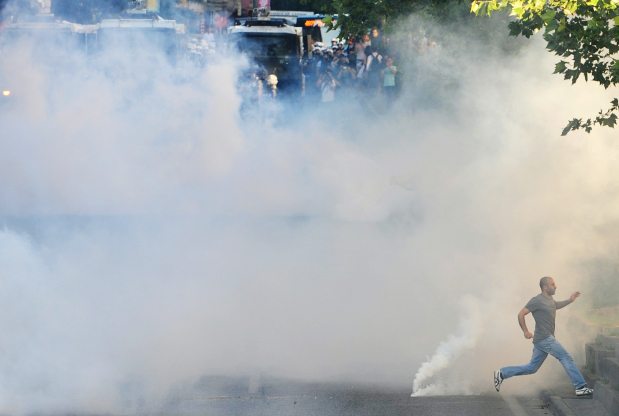
A protester runs amidst tear gas smoke during clashes between Kurdish and Turkish leftist groups and riot policemen, on June 22, 2011, in Istanbul. Islamist attacks on Western targets has slowed since 2003, when a spate of bombings targeted a British consulate, two synagogues, and a British bank in Istanbul. Nevertheless, Turkey still faces a high risk of terrorist attack.
Photograph by: Bulent Kilic, AFP/Getty Images
While its government is a strong partner for NATO and supporter of the Afghan mission, some Turkish nationals continue to play leading roles in al-Qaida and other Islamist organizations.
Islamist attacks on Western targets has slowed since 2003, when a spate of bombings targeted a British consulate, two synagogues, and a British bank in Istanbul. Nevertheless, Turkey still faces a high risk of terrorist attack.
Turkey has played an important role in the war in Afghanistan, providing more than 1,700 troops. The country opposed the war against its neighbour, Iraq. Turkey nevertheless helped the United States by authorizing the use of Incirlik Air Base for refuelling of aircraft and the transportation of materiel into both theatres of war.
Turkish Muslims have also flocked to war zones such as Afghanistan, Iraq and Chechnya to wage jihad, with as many as 100 travelling to Pakistan to fight alongside the Taliban.
The U.S. State Department says al-Qaida, the Islamic Jihad Union and other extremist groups have a logistical presence in Turkey, and use the country as a point of transit.
In Eastern Turkey, the Kurdish minority has for many years been waging an insurgency for independence, and unification with Kurdish populations in Iraq and elsewhere in the region.
© Copyright (c) Postmedia News
via Terror Profile: Turkey.

Leave a Reply